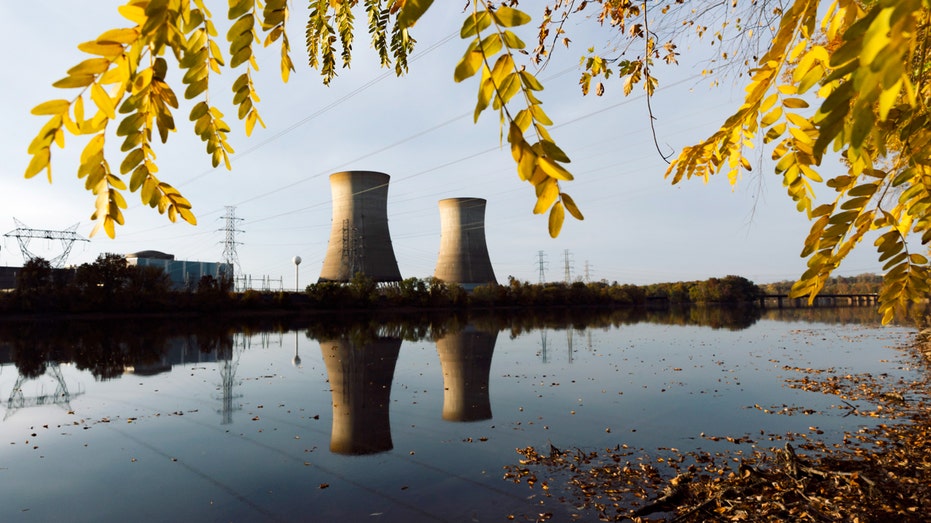Artificial intelligence fuels Big Tech partnerships with nuclear energy producers
There has been little change in U.S. energy consumption over the past decade. Increased efforts to make energy use more efficient have kept levels low. But over the next five years, demand for electricity to power data centers is expected to more than double. Some estimates show the facilities are expected to require as much energy in 2030 as the entire country of Japan does today."Every investor is lining up to invest in the next AI breakthrough. But when it comes to energy, there is a challenge in terms of permitting, the reality of construction timelines for new power plants and new grid capabilities," said senior advisor with the Wadhwani A.I. center at the Center for Strategic and International Studies. "All of this could slow down A.I. just as the research and development is preparing for takeoff."The demand from tech firms comes amid skepticism from consumers. According to a Fox News Poll on how voters felt about A.I. in society, 43% saw it as a good thing, while 47% thought it was a bad thing."I think it's natural that people will always have, call it a mixture of hopes and anxieties about what a new technology, including any new technology and especially AI may bring," Microsoft President Brad Smith said. "The truth is we all rely on AI already, even if we don't think about it."AMERICA'S POWER GRID FACES UNPRECEDENTED CHALLENGE AS AI AND CRYPTO DRIVE DEMAND SKYWARDWhile positive views have increased faster than negative views, according to polling from 2023, subgroups surveyed expressed opinions all over the board. Most rural voters, White voters, women and those over the age of 45 viewed A.I. as a bad thing. Urban voters, non-White voters, men and those younger than 45 viewed the technology as good. Among major political parties, registered Republicans were most optimistic about A.I. but no partys approval was above 50%.Despite the somewhat negative sentiment of most voters, tech companies are powering on."A.I. relies on a lot of what we call compute. A lot of chips that do a lot of calculations and a lot of data that is accessed and is stored. So all of that requires more electricity. And it's why we have to pursue new partnerships as we are with the kinds of companies that generate electricity," Smith said.At least two nuclear plants are scheduled to restart thanks to big tech partnerships."I think this will all become an increasing part of the nation's electricity future," Smith said. "It only makes sense for a power company to invest, to bring something like Three Mile Island back online if it has a guarantee that somebody's gonna purchase it. And so in this case, Microsoft entered into a long-term advanced purchase agreement with Constellation."FOX NEWS AI NEWSLETTER: CHATGPT REWIRING YOUR BRAINThree Mile Island is located near Pennsylvanias capital, Harrisburg. The site is most widely known for its Unit 2 reactors partial meltdown in 1979. It was one of the most serious nuclear accidents in U.S. history. The reactor was immediately taken offline in the aftermath."Very small traces of radioactivity have been released from the plant," said Metropolitan Edison Vice President John "Jack" Herbein at the time.While there were no detectable health effects, the incident changed how nuclear plants operate. Three Mile Island Unite 1 closed in 2019 for economic reasons. Constellation and Microsoft plan to restart the reactor as early as 2027 at what is now called Crane Energy Center. It will add more than 800 megawatts of energy. Thats enough to power more than 800,000 homes. Nuclear power has the highest energy efficiency rate, yet energy producers say the U.S. should remain diversified."I think it's going to be an important part of the mix," Constellation President and CEO Joseph Dominguez said. "We don't need 24/7 power for the full amount of electricity in the U.S. We still have seasonal needs, we still have day and night differences."Microsoft is working to add the amount of power back to the grid that the companys data centers will use from the regional transmission system."Our philosophy as a company is that we will invest to bring onto the electric grid as much or more power than we will consume," Smith said. "We will do that in a way that ensures that none of the neighbors are going to see rise in their electricity rates."Constellation is also partnering with Meta to relicense its Clinton Clean Energy Center in central Illinois for another 20 years."It's a combination of existing megawatts plus new megawatts that are being developed pursuant to the great agreements we have with the hyperscalers," Dominguez said.WHAT AI'S INSATIABLE APPETITE FOR POWER MEANS FOR OUR FUTUREMeta plans to add up to four gigawatts of nuclear generation across the U.S. starting in the early 2030s. Amazon will build two data center complexes in Pennsylvania and use nearly two gigawatts of electricity from Talen Energys nuclear plant. Google is partnering with Elementl Power on three nuclear projects, each expected to produce 600 megawatts."This is all nuclear. It's a hot industry. It's a brilliant industry," President Donald Trump said as he signed several executive orders in May. Those are intended to quadruple domestic nuclear power production within the next 25 years."To win the AI race, we're going to need a lot of energy," White House A.I. and Crypto Czar David Sacks said. "The new AI data centers are very power hungry. They consume a lot of electricity. And the U.S. electric grid really hasn't grown very much over the past decade."Sacks founded venture capital firm Craft Ventures. Now he is helping steer President Trumps A.I. agenda."We have to have the most infrastructure. We need to have the most data centers. We need the most computing power, and that means more energy," Sacks said. "China has doubled the size of its electric grid over the past decade. We haven't and so we need to drill baby drill and build baby build."




